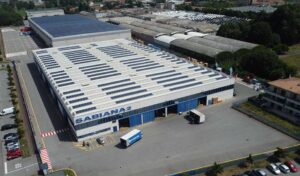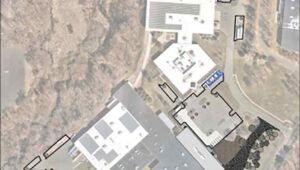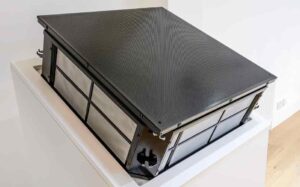Thai tests confirm safety of R290
10th June 2020
THAILAND: The Thai government has been asked to review its building code after air conditioning tests are said to have confirmed the safety of flammable refrigerant propane.
With its zero ODP and GWP of just 3, R290 is considered a long-term solution for room air conditioners. However, its use is hindered by its A3 flammability rating and the resulting concerns on safety. The recent safety demonstration, held for the first time in Thailand, is said to have proved that application of propane (R290) is safe if applicable safety standards (IEC 60335-2-40) are met, and installation and servicing are conducted by trained technicians.
The tests were carried out in January by the Thailand Refrigeration and Air Conditioning Nationally Appropriate Mitigation Action (RAC NAMA), a project commissioned in 2016 by the German Federal Ministry of the Environment, Nature Conservation and Nuclear Safety (BMU) and United Kingdom’s Department for Business, Energy and Industrial Strategy (BEIS).
Thailand has previously imposed strict controls on flammable hydrocarbon refrigerants following a series of injuries and fatalities involving air conditioning units. As a result, R32, with a GWP of 677, is still the most common refrigerant for commercially available room air conditioners in Thailand, followed by R410A.
The RAC NAMA Project is supporting Thailand in overcoming blockades, particularly to ensure safe application of R290 in AC and refrigeration, give advice on policies and standards, and train service technicians on the R290 based technology.
Source of ignition and leak simulation tests are said to have shown that concentrations at all potential sources of ignition remained well below the lower flammability limit. Also, in room leak simulation tests, the concentrations of the leaked refrigerant in the air with the fan turned on and with the fan turned off at all positions remained below 50% of the LFL for the whole leak period.
“The results of the safety test are useful for Thai producers because they now know what they need to focus on during the design and production of the R290 units. For the consumers, the test should ease their concerns over safety because it proved that there is an absolutely low flammability risk as long as the products conform to the standards,” said Professor Sorntouch Khumdumrongkiat of the Refrigeration and Air Conditioning Engineering Technology (RAET), College of Industrial Technology, King Mongkut’s University of Technology North Bangkok (KMUTNB), who supervised the test process.
Several leak simulation tests were carried out with different stakeholder groups (testing laboratory, AC and refrigeration producers, and policymakers) to create realistic leak scenarios and determine the range of leak mass flow concentration from R290 units that could be used without any significant fire hazard.
The findings are said to have shown that A3 refrigerants, such as R290, can be applied safely if the product is designed with the right components under the applicable standards, and if installation and servicing is conducted by trained technicians who adhere to the requirements and the standards.
In addition to safety standards, the tests recognise the importance of properly trained technicians to install and maintain the units.
“With R290 ACs, there are new parts and processes, so the technicians need to be trained on the new knowledge, techniques and safety protocols. With all this, consumers do not need to worry at all,” said Prof Sorntouch.
“What is important is that the product must be up to the standards – EN 378-2: 2016 and IEC 60335-2-40:2013 – and handled by technicians who have the knowledge and skills of R290,”he added.
The Thai Industrial Standard Institute (TISI) is said to be currently updating the Thai Industrial Standard, TIS 1529-25XX- which is based on the international standard IEC 60335-2-40 (covering safety for domestic AC using flammable refrigerants). Once the national standard is updated, restrictions will be imposed on producers and technicians to comply with the new regulation. In turn, the safety framework in Thailand will be strengthened.
“To move this matter forward, the government should review the building code to be in line with the global refrigerant trend and encourage consumers to buy cooling appliances that use natural refrigerants because they consume less energy and are much more environmentally friendly,” said Prof Sorntouch. “This can be done by launching some tax subsidy campaigns so that the price of the new products will be competitive and affordable for the public.”
Related stories:
Singapore issues HC refrigerant warning – 27 February 2014
SINGAPORE: Air conditioning and refrigeration engineers in Singapore have been instructed to be extra vigilant following injuries and fatalities involving hydrocarbon refrigerants. Read more…







